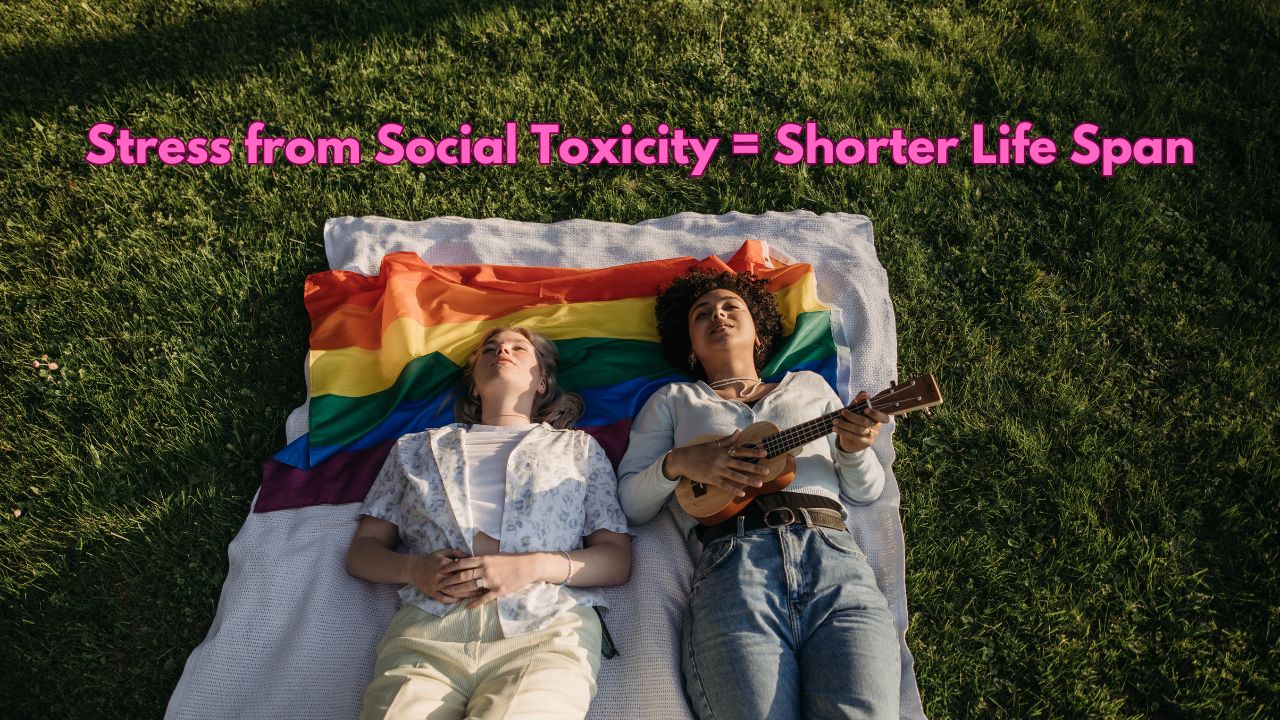The recent findings of a groundbreaking study conducted by the Harvard Pilgrim Health Care Institute have brought to light concerning trends in the life expectancy of lesbian and bisexual women. This comprehensive analysis of decades of data sheds new light on the profound impact of societal stigma and discrimination on health outcomes within LGBTQ communities.
Alarming Disparities in Mortality Rates

Lead author Dr. Sarah McKetta and her team delved into data from the Nurses’ Health Study II, uncovering stark differentials in life expectancy among sexual minority women. Shockingly, bisexual individuals emerged as the demographic most disproportionately affected, facing mortality rates nearly 40 percent higher than heterosexual women. Meanwhile, lesbian women exhibited mortality rates 20 percent higher on average.
Root Causes of Premature Mortality

The study’s findings underscore the detrimental effects of ‘toxic social forces’, including discrimination and marginalization, on the health and well-being of LGBTQ individuals. Senior author Brittany Charlton emphasized the urgent need for targeted interventions and support systems to address the underlying societal factors driving these disparities.
Navigating Systemic Barriers to Health Equity

Beyond statistical analyses, the research highlights the systemic barriers contributing to health inequities within LGBTQ communities. From inadequate access to healthcare services to pervasive societal stigma, sexual minority women face multifaceted challenges in attaining optimal health outcomes.
Impact of Social Isolation on Health

The study draws attention to the detrimental impact of social isolation on health outcomes, with loneliness and lack of social support exacerbating vulnerabilities among LGBTQ individuals. Addressing these social determinants of health requires concerted efforts from policymakers, healthcare providers, and community leaders.
Urgent Need for Culturally Competent Healthcare

In light of these findings, there is a clear imperative for healthcare systems to adopt culturally competent practices and policies that cater to the unique needs of LGBTQ patients. This includes enhancing screening and treatment protocols to address specific health concerns and providing comprehensive support services.
Advancing Inclusive Research Efforts

Looking ahead, it is essential to continue advancing research efforts aimed at elucidating the complex interplay of factors contributing to health disparities within LGBTQ communities. By amplifying the voices of sexual minority individuals and advocating for inclusive policies and practices, we can strive towards a future where all individuals, regardless of sexual orientation, can lead healthy and fulfilling lives.
Promoting Advocacy and Awareness

Moreover, raising awareness of these disparities is crucial for promoting advocacy and policy changes aimed at addressing the root causes of LGBTQ health inequities. Through collaborative efforts and community engagement, we can work towards building a more inclusive and supportive society for sexual minority individuals.
Systemic Barriers

In conclusion, the findings of this study underscore the urgent need for comprehensive interventions to address the systemic barriers and societal factors driving health disparities within LGBTQ communities. By prioritizing equity, inclusion, and advocacy, we can strive towards a future where all individuals have equal access to healthcare and can thrive regardless of sexual orientation.
Addressing the Underlying Stigma

What do you think? How can society address the underlying stigma and discrimination that contribute to the disparities in life expectancy among lesbian and bisexual women? What steps can healthcare providers take to ensure that sexual minority patients receive equitable access to healthcare services and support?
Unique Needs and Challenges

In what ways can public health initiatives and policies be tailored to better address the unique needs and challenges faced by LGBTQ individuals? How might raising awareness about the healthcare disparities experienced by sexual minority women help combat stereotypes and misconceptions?
Source: Daily Mail






















